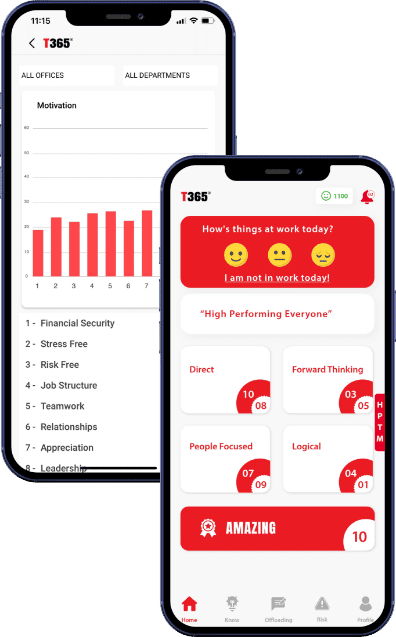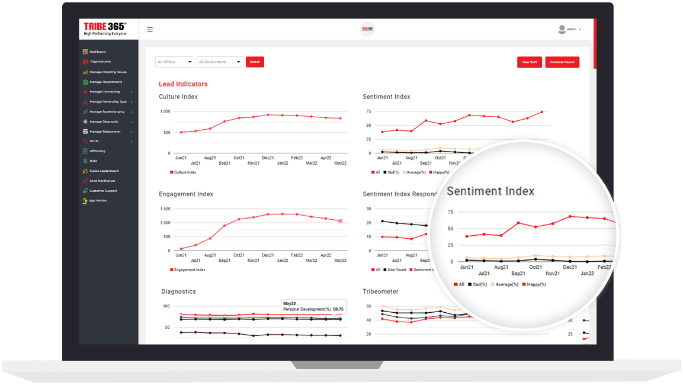The Work Revolution Is Coming – Is Your Company Ready?
You may not know it yet, but there’s a workplace revolution brewing.
Employees – emboldened by a buoyant job market and the potential to work for almost any company in the world in a more flexible and remote setting – are pushing back with employers that won’t properly address their wellbeing and work/life balance issues.
And they’re voting with their feet by leaving to find other jobs in what has been termed ‘The Great Resignation’.
The Great Resignation has been rocking companies of all shapes and sizes across the world since the phenomenon started in April 2021.
Organisations simply can’t ignore the workplace revolution that’s coming their way because they will end up being decimated by staff and skills shortages.
Does your company need to be worried by the workplace revolution and The Great Resignation?
Or do you have a robust and healthy culture that will make your staff resist the temptation to leave you for another job?
What Is The Great Resignation?
A compelling survey of more than 30,000 global workers showed that 41% of staff are considering quitting or changing professions this year.
Another study revealed that 38% of workers in the UK and Ireland are planning to quit in the next six months to a year.
Meanwhile, more than four million people in the USA – in what is the biggest spike in history – have already resigned from their jobs, with many more planning to do so in the near future.
In April 2021, HR experts began to dub this mass movement ‘The Great Resignation’.
And The Great Resignation is now actually accelerating, with records tumbling each month.
Why?
- Remote working technologies have opened up a whole world of new international opportunities to worker who might previously have been tied to specific geographies i.e. jobs close to home
- Work/life balance. The pandemic triggered a shift in priorities, encouraging them to seek the flexibility that allows them to free up time for other things outside of work
- Previous generations may have stayed in dead-end jobs for life, but why would today’s workers do that when there are so many attainable opportunities out there?
- Maybe people just got sick of the way their employers treated them, before and during lockdown?
- For instance, some companies obliterated mutual trust by insisting their staff plug technology into their computer that closely monitors activity. Or they blurred the lines between work and free time, placing undue pressure on staff without rewarding them
The above are all highly relevant – and all too prevalent – examples of companies failing to address their internal cultures and adapt to the changing needs of their staff and potential recruits.
And that’s a big part of why they’re now losing valuable team members left, right and centre.
The Covid Effect
Calls for organisations to become more open-minded about flexible, remote and working from home had been getting louder before the pandemic.
And, when the pandemic hit and the world went into lockdown, these frowned-upon ways of working suddenly became a necessity if companies wanted to survive.
Doubts were expressed about whether staff really could be trusted to work from home. Performance would surely drop off. It would be a disaster, and organisations across the world would collapse in a domino effect.
What absolute nonsense that’s been shown to be.
The way that people at all levels performed during lockdown vindicated the arguments HR experts have been making for years about trusting staff to work flexibly and from home.
And, indeed, the boot is now on the other foot, as society questions whether there really is a need for a physical office in the post-COVID world.
The modern workplace is beginning to be dominated by Gen Z and millennials – and they simply won’t put up with conditions that previous generations who might have just rolled with the punches.
And organisations which didn’t see this problem coming or aren’t willing to address this change are going to come unstuck over the next couple of years because they will experience extremely high turnover and not be able to attract people with the kinds of skills to thrive in the new business environment.
Too Many Organisations Don’t Take Culture Seriously Enough
Without wanting to seem cynical, organisations have been paying little more than lip service to the idea of improving the employee experience for years.
Their motivations have been largely brand-led i.e. ‘If we give the impression that this is a great place to work, we’ll look better to customers and attract the talent we need’.
The problem? It’s all superficial if the actual reality is that staff who work for these companies are unhappy (often deeply so).
You only have to look at Glassdoor or its equivalents to read reviews by current and ex employees to get a truer – and eye-opening – picture of what it’s really like to work for such-and-such company.
And, indeed, news outlets across the world have exposed some of the world’s best known brands as having poor and even toxic work cultures.
Perks, benefits and even financial rewards are often just sticking plasters designed to divert attention away from big problems, like unhappiness at work that leads to poor performance and high staff turnover.
Companies have used these tactics to mask their rotten cultures for decades, but now staff – tired of feeling that they’re not being listened to or appreciated – are leaving in their droves.
What Do Organisations Need To Do To Reverse The Trend?
The most important thing for companies to do in the face of The Great Resignation and workplace revolution is to properly address and improve their workplace cultures.

But why is workplace culture so important?
The stronger a company’s culture, the easier it is for employees to understand what is expected of them. The clearer the vision, the easier it is for people to buy into it. Shared goals give teams something tangible to work towards together in unison. The more you engage and inspire your employees, the more likely it is that they will be happy, motivated and committed
Healthy workplace cultures attract talent, drive engagement, improve employee satisfaction and positively impact performance. It may sound simple, but the happier and more engaged your people are, the better they will perform!
Workplace culture is a manifestation of your company’s values: values that need to be lived. Values are key because they make it clear to staff what are considered to be positive behaviours; and which are negative. Having this shared understanding in place provides a framework towards building a great culture that people want to belong to
This corporate governance – that is, clarifying which behaviours are deemed to be positive and which are unhealthy – will eliminate silos and improve workflow
People need to feel that they are being valued and listened to. That certainly applies in home and social situations, so why should it be any different in the workplace? If employees are recognised, rewarded and made to feel that they are contributing to an organisation’s success, the happier they will be in their work
Want to guard against The Great Resignation and prepare for the workplace revolution?

Interested in finding out more?
Book a meeting in with the Tribe team
today on +44 (0) 1325734847 or at
team@tribe365.co


















